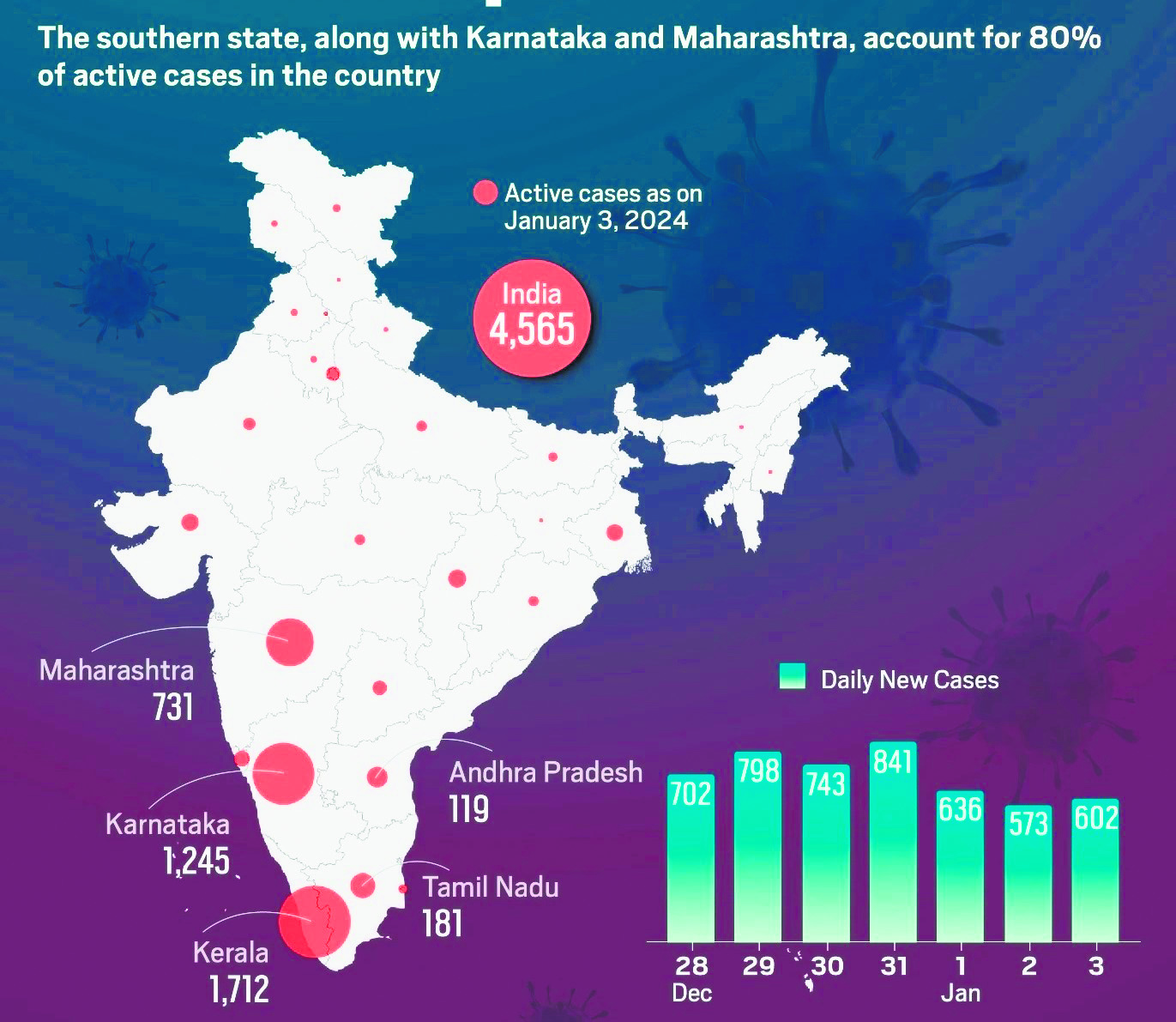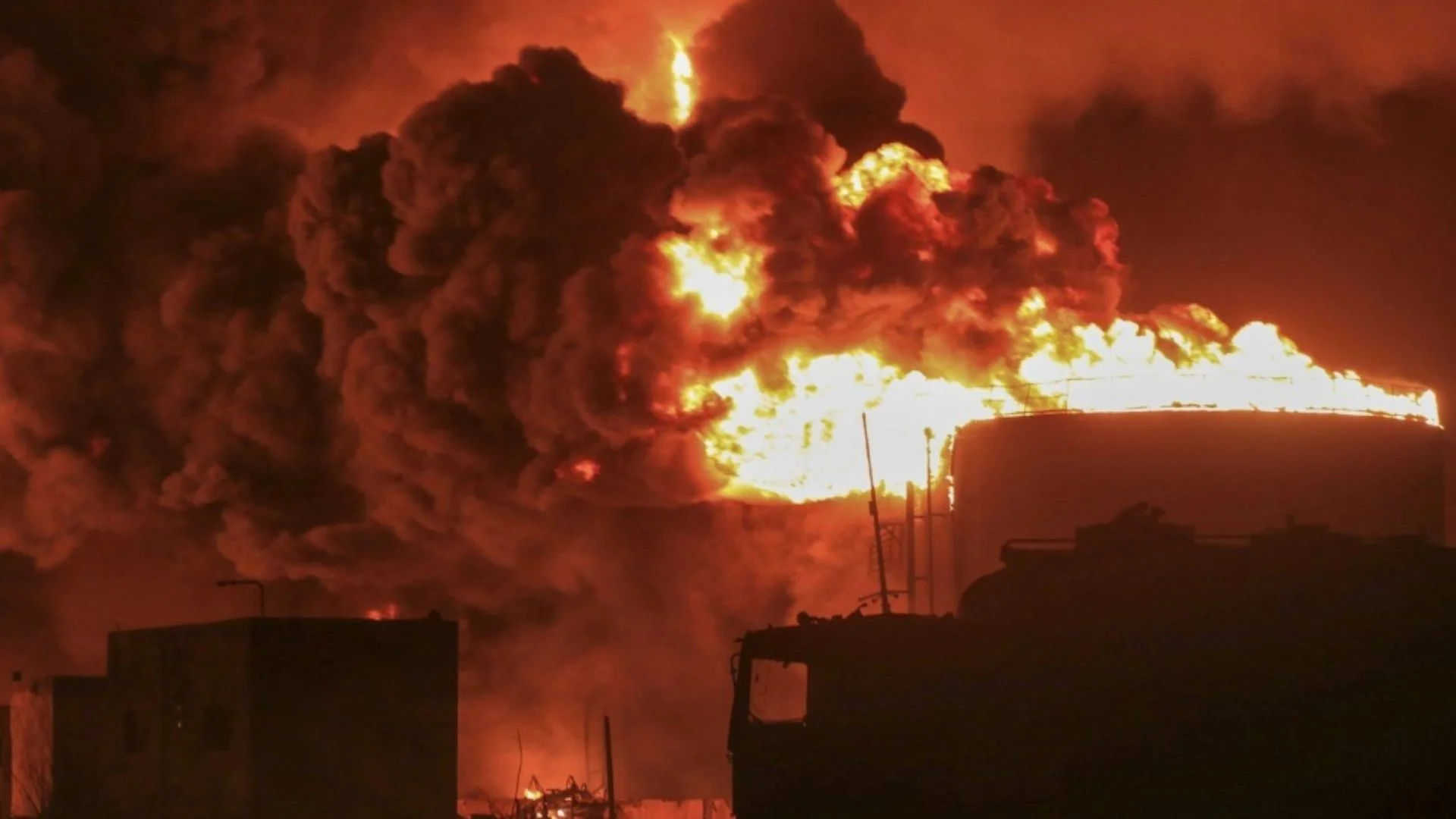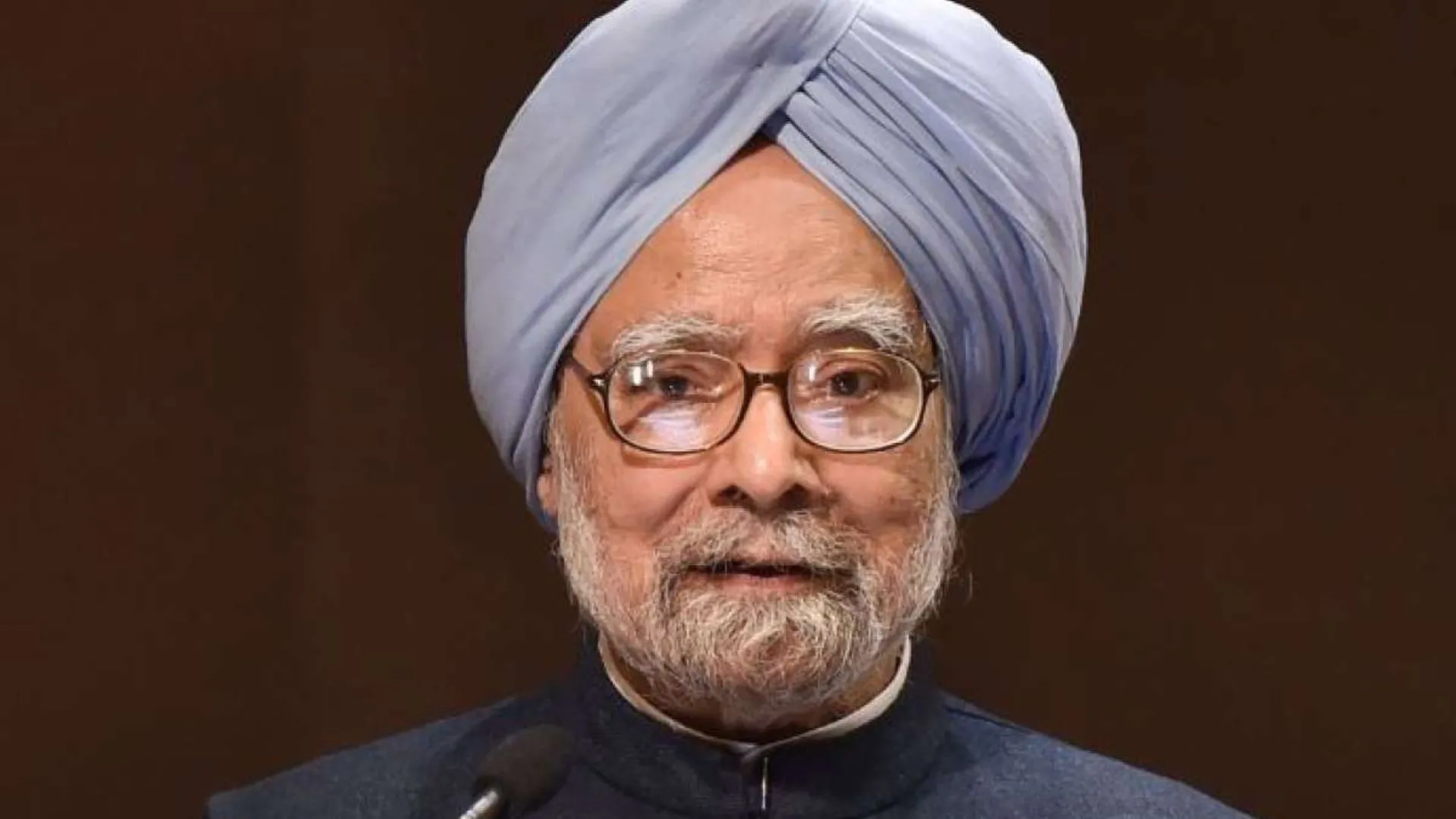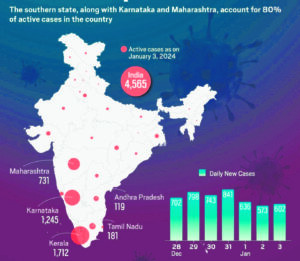As winter sets in and cold wave intensifies, health experts are highlighting a sudden surge in viral infections, influenza, and COVID-19 cases.
Dr Nikhil Modi, a senior pulmonologist at Indraprastha Apollo Hospital, pointed out that the declining temperature leads to increased moisture in the air, low wind speed, and a rise in pollution, contributing to various infections.
“Due to the falling temperature, there is fog, which, along with pollution, forms smog. This atmospheric condition can result in different types of infections, and many people are experiencing difficulty in breathing,” Dr Modi said.
“The rise in cases is not limited to COVID-19, other infections, including swine flu, influenza, and H1N1, have also seen an increase. Hospitals are witnessing a surge in patients with symptoms such as cough, cold, fever, breathing problems, decreased oxygen levels, and pneumonia complaints,” he added.
Dr Nikhil Modi emphasized preventive measures to avoid infections in winter.
He recommended staying indoors whenever possible, covering the body adequately in cold weather, especially the head and legs. Consuming nutritious, hot food, maintaining cleanliness, and wearing masks when going outside are crucial precautions.
“Stay indoors in such weather and not go out of the house unless it is necessary. The best way to avoid diseases in winter is to keep your body properly covered in the cold. Especially cover your head and legs,” he said.
“Eat nutritious food, eat hot food, take care of cleanliness and wear a mask whenever you go out of the house. Because the mask will not only protect you from many viral infections but will also protect you from pollution,” Dr Modi added.
Amid the surge in COVID-19 cases, the doctor urged people not to ignore symptoms such as cough, cold, fever, body ache, loose motion, throat mucus, and headaches.
He emphasized the importance of testing for other viral infections, not just COVID.
“If a patient is continuously experiencing problems like cough, cold, fever, body ache, loose motion, mucus in the throat, headache, then do not ignore it and do not just get the corona test done. But also get tested for other viral infections. Because many times people get tested for COVID-19 only when they have a cough, cold, fever etc. and do not get tested for other diseases and later their problems increase,” the doctor said.
“Many times people ignore fever for several days, which is not right. If a fever above 100 persists for two or three days continuously, consult a doctor immediately and get it checked. It is not right to take only paracetamol,” he added.
India recorded 774 fresh cases of COVID-19 in the last 24 hours according to the Union Health Ministry.
As per official data, two deaths have been reported in the country in the last 24 hours – one each in Gujarat and Tamil Nadu.
With this, the total count of coronavirus cases in India since its outbreak in January 2020 has reached 4,50,17,431 with an increase of 774 cases in the last 24 hours. The death toll due to COVID-19 cases in India has risen to, 5,33,387 reflecting an increase of two deaths in the last 24 hours.
The total number of COVID-19 cases that have recovered in India is 4,44,79,804, an increase of 919 since yesterday morning.
India has reported a recent rise in COVID cases, with 774 new infections, bringing the total active cases to 4,049, as per the latest data from the health ministry on Sunday.
The country recorded five fatalities in the last 24 hours: two in Kerala, two in Maharashtra, and one in Jammu and Kashmir, based on the ministry’s update at 8 am. Notably, daily case numbers had fallen to double digits by December 5, 2023. However, the advent of a new variant and colder weather led to an increase in cases. The largest single-day spike since then was on December 31, 2023, with 841 new cases, according to official sources.
What is the new variant?
The new variant, experts have warned, appears to be more immune evasive and has been identified by WHO scientists as a ‘variant of interest’.
JN.1 was first detected in the US in September 2023. By the end of October, it made up less than 0.1% of SARS-CoV-2 viruses, as per US Centers for Disease Control and Prevention (CDC). Most cases in India have been reported from Kerala, Karnataka, Tamil Nadu, and Odisha.
Is the new variant infectious?
According to the CDC, JN.1’s continued growth suggests that it might either be more transmissible or better at evading the human immune system. But CDC also suggested that it has no clear indication as of now, whether the new variant is a risk to public health relative to other circulating variants currently. “There is no indication of increased severity from JN.1 at this time,” it added.
WHO’s technical lead Maria Van Kerkhove, wrote on social media platform X, “Respiratory diseases are increasing around the world due to several pathogens including COVID-19, flu, rhinovirus, mycoplasma pneumonia, and others. SARS-CoV-2 continues to evolve. JN.1 (sub-variant of BA.2.86) is already a VOI and continues to increase in circulation.”
At least 35 nations have reported the presence of the variant, with Singapore seeing massive resurgence in cases.
What is the Indian government’s stance?
The health ministry, in a missive on Monday, sent letters to states and Union Territories, underlining control and management strategies. The missive noted that “due to consistent and collaborative actions between Centre and state governments, we have been able to sustain the trajectory at sustainable low rates. However, as covid-19 virus continues to circulate and its epidemiological behaviour gets settled with the Indian weather conditions and circulation of other pathogens, it is important to sustain a momentum to effectively deal with public health challenges.”
What precautions should one take?
The symptoms are similar to those of other variants of SARS-CoV-2, said the health ministry. So, doctors are looking out for fevers, shortness of breath, runny nose, sore throat, cough, fatigue, etc.
The advice remains similar to that for covid – stay home when symptoms show up and report to a doctor if it gets worse, persists, or the person is immunity compromised or elderly. Doctors suggest masking up in crowded areas, especially enclosed ones if the number of cases is increasing locally.
How effective is the covid vaccine in this case?
According to both WHO and CDC, updated vaccines are effective against JN.1, the sub-variant. However, data from Singapore showed that those who had received their last covid-19 vaccine dose more than a year ago were more likely to need hospitalization. Experts said that wide coverage of vaccination and subsequent non-symptomatic infections are likely to have resulted in a significant level of protection in India.







